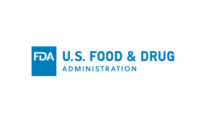FDA Issues Draft Guidance on Evaluating Non-Listed Food Allergens

Credit: Fertnig/E+ via Getty Images
The U.S. Food and Drug Administration (FDA) is heightening its efforts to protect the public from food allergens. The agency recently published a draft guidance that is intended to clarify how FDA will evaluate the public health risk of food allergens that are not one of the major food allergens identified by law in the Federal Food, Drug, and Cosmetic Act. At present, the major allergens are milk, eggs, fish, crustacean shellfish, tree nuts, peanuts, wheat, and soybeans; sesame, the ninth allergen, becomes applicable to the law on January 1, 2023. Under the law, food companies are required to label foods containing any of the nine major allergens and follow regulations that prevent cross-contact.
Regarding non-listed food allergens, FDA’s guidance focuses on immunoglobulin E antibody (IgE)-mediated food allergies, which are known to cause the most severe and life-threatening reactions. The guidance specifies:
- Scientific factors FDA considers when evaluating the public health importance of a non-listed food allergen
- Information relevant to labeling and production that FDA considers when evaluating the public health importance of a non-listed food allergen
- FDA recommendations for how to identify and evaluate the body of evidence applicable to an evaluation of the public health importance of a non-listed food allergen.
The guidance is relevant to FDA staff who are responsible for evaluating the public health importance of a non-listed food allergen, as well as stakeholders who intend to petition FDA to establish regulatory requirements based on the public health importance of a non-listed food allergen or who are interested in how FDA evaluates the public health importance of such food allergens. Stakeholders can submit comments for consideration on the draft guidance at www.regulations.gov.
Looking for a reprint of this article?
From high-res PDFs to custom plaques, order your copy today!





